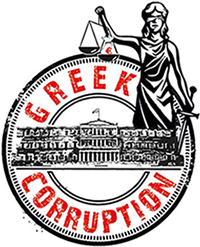The court documents explains how, and points out that this was not the only case and that it is a corruption epidemic in the field of medical supply in Greece.
Thus, for example, in Greece the price of a prosthetic knee was £4,400 when the European average was exactly half (£2,200), and on occasions lower still at £1,100. One reason why prices were so high in Greece was that the market was corrupt. Those responsible for procurement of medical supplies were provided with cash or other incentives to award the relevant contract to a particular supplier.
The practice was endemic, DPI was not the only company involved in this corruption.
To understand something of the scale, during a period of just under 4 years sales by DPI to Greece were substantial, falling just short of £20 million or €29 million. Something like £4.5 million of corrupt payments were made to health officials, doctors and surgeons. The object was to retain DPI’s market position in Greece, and this was the way it was to be done. In the meantime, of course, the additions to the bill fell on to the shoulders of the tax-payer in Greece.
Depuy International Limited (“DPI”) making funds available for the payment of inducements or rewards to surgeons in the Greek orthopaedic market dates back to at least 1997 if not earlier. At that time, DPI sold products in the Greek public health system through a distribution contract with Medec SA (“Medec”), a Greek company owned and managed by Nikolaos Karagiannis (“Karagiannis”). Separately, DPI paid a 35% “commission” (in advance, on all Medec sales) to an Isle of Man registered company called Madison Management Limited (“Madison”), also owned by Karagiannis. In truth, this payment of 35% was understood by those to enable Karagiannis (after expenses and other costs) to pay corrupt cash incentives or similar inducements/rewards for surgeons in the Greek market to use DPI’s products.
Depuy International Limited ετσι πληρωναμε τις ΜΙΖΕΣ στην Ελλάδα_w
